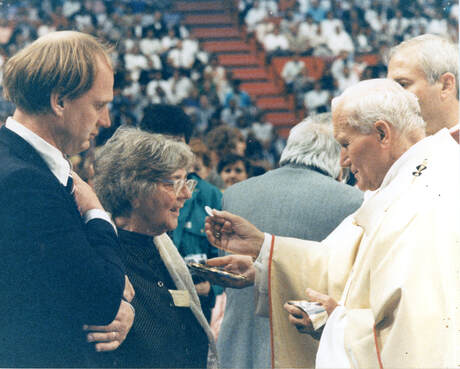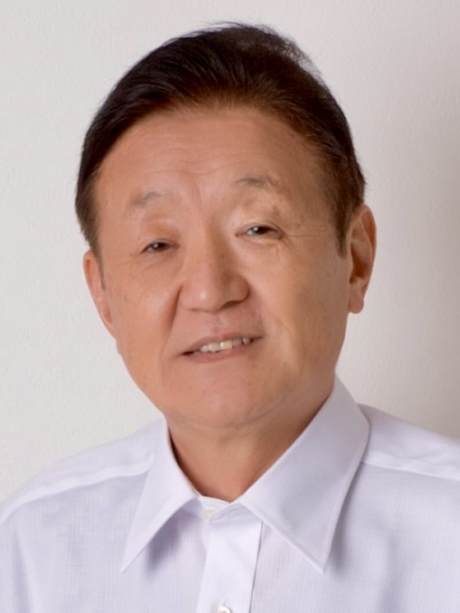I have a two-year fellowship at the University of Oxford which started in February. The theme of the research proposal is “Reviving vanishing democracy, particularly in Japan”. But when I arrived in Europe, we were in the forefront of the ‘Trump Theatre’, with the U.S. and Europe at odds with each other. The conflicts in Ukraine and the Middle East, and now the tariff war, have turned into a global theatre. In addition to meetings at the EU, NATO, the OECD, and the WTO, the leaders of Britain, Germany, France, and Poland met to show solidarity with Ukraine the day after Chinese President Xi Jinping attended a ceremony in Russia commemorating the victory against Germany. The 80th anniversary of the end of World War II becomes a stage play for European leaders. But the world shakes with every move by President Trump.
President Trump will go down in world history as a single leader who shook the entire world. I have supported some of his reforms. His pledge to stop wars is a strong argument against the Democrats, who have started more wars than Republicans. His policies to eliminate government waste and improve people's lives are also acceptable. However, he has been hostile not only to his friends — Canada, Mexico, and Panama — but also to Ukraine, which has been invaded. The logic is that “the deal” is in the U.S.'s national interest; however, the tariff war has changed the game. Tariffs have been opposed not only by trading partners around the world, but also they have decreased U.S. stock prices and impacted the lives of American people with increased inflation and negative growth.
At an international conference on April 23, Ken Griffin, a billionaire supporter of the President, stated the following: “Trump’s trade war is hurting America’s standing in the world and eroding the nation’s brand. Treasury bonds have historically been the ultimate safe-haven asset, backed up by the full faith of the US Treasury. It could inflict significant damage to the global economy — but even more harm to its own economy and reputation.”
It is worth noting that the tariffs introduced in the 1930s led to protectionism, global economic stagnation, massive inflation in Germany culminating in World War II. Confidence in the U.S. bonds, the dollar, and the global free trade system has plunged to a point of no return, creating a crisis for the entire world.
What President Trump is now pushing domestically was described by Zhang Qianfan, a constitutional law professor in Beijing, as “American-style Cultural Revolution”. Trump conducts a sweeping repudiation of diversity, equity, and inclusion (DEI) and ‘woke’. The term ‘woke’ was originally coined by African Americans to describe growing awareness of structural inequality, including racism, sexism, and LGBT discrimination. In recent years, however, Republican supporters have used ‘woke’ as a pejorative term to criticize Democratic supporters. The President has banned DEI and woke values in government agencies, public schools, and universities across the United States. He has also made several changes, including clarifying male and female definitions, denying other genders, and eliminating shared toilets for men and women.
One blogger likened Trump’s February tweet — “He who saves his Country does not violate any Law” — to Mao’s iconic slogan: “To rebel is justified.” I attended a National Prayer Breakfast in Washington, DC in February 2017 and listened to a speech Trump made. Contrary to my expectations, the speech was delivered Christian-like. I confirmed his political ability to play to his audience.
This President who declares himself a Christian has plunged the world into an irreversible situation. And it is alarming that we cannot find political leaders to confront a man whose views change daily. It is also tragic that the Democratic Party of the United States has no leader to offer alternatives.
On Easter Sunday, on April 20, I watched Pope Francis’s sermon, remembering the day I was baptized at a Presbyterian church in Rome in 1980. A few days earlier, we had heard Pope John Paul II’s sermon and saw his smile up close during a visit by Moral Re-Armament friends to St. Peter's. So, Pope Francis’s message on peace reminded me of John Paul II, who contributed to the liberation of Poland and other Communist countries. It also reminded me of Cardinal Franz König of Vienna, who played an important role in John Paul II's pontificate. I met Cardinal König at the MRA conferences in Caux, Switzerland and other places.
Pope Francis returned to heaven the next day and was revered around the world even more after he had risen, and not just by Catholics. He was the first South American Pope and was known as “the Pope for the poor”. He criticized Russia's invasion of Ukraine and Israel's attacks on civilians in Gaza. He undertook reforms on long-standing issues within the Catholic Church.
The Pope’s funeral on April 26 was attended by leaders from around the world, including President Trump and Ukrainian President Volodymyr Zelensky. In 2016, Pope Francis criticized President Trump for building the U.S.-Mexico border wall. Pope said that people who only think about building walls, not bridges, are not Christians. The fact that Pope Francis and Trump came together again at the funeral may have some special significance.
On May 2, President Trump posted an AI-generated image of himself dressed as the Pope on his social networking site. Perhaps his prayers were answered, as the new Pope, Leo XIV, is the first US Pope. He had helped Pope Francis’ reforms that added three women to the voting base that decides which bishop nominations are forwarded to the Pope, and he was close to immigrants and the poor, much like Pope Francis.
Leo XIV took the name of his predecessor, Leo XIII, who was known as the “Pope of Society” and “the Workers Pope”, and who helped build relations with Russia, Germany, the United Kingdom, and the United States.
Pope Leo XIV, in his first speech as Pope on May 8, mentioned “an unarmed and disarming peace, humble and persevering”. In his inaugural mass on May 18, he emphasized the peace with a particular focus on Ukraine, Gaza, and Myanmar. He also held a meeting with Ukrainian President Zelensky.
The world is divided with the emergence of a ‘centrifugal dividing force’ around the President of the world's most powerful country. In contrast, the lives of Pope Francis, whose global reputation has soared since his ascension, and Pope Leo XIV, the first US Pope, seem to symbolize the peace the world longs for. These two Popes seem to be the exceptional leaders who can confront President Trump, who is armed by his “cultural revolution”. They have the ‘centripetal uniting force’ to represent the hopes of not only 1.4 billion Catholics but also people of many religions, races, and classes worldwide. I urge world political leaders to join this ‘centripetal force’.
I dream that these three American Christians could still bring about world peace. The ‘centripetal force’, the bringing together to the centre, of the heavenly and living Popes, to counter the ‘centrifugal force’, divisive force, of a self-proclaimed Christian President to avoid an irreversible crisis.


